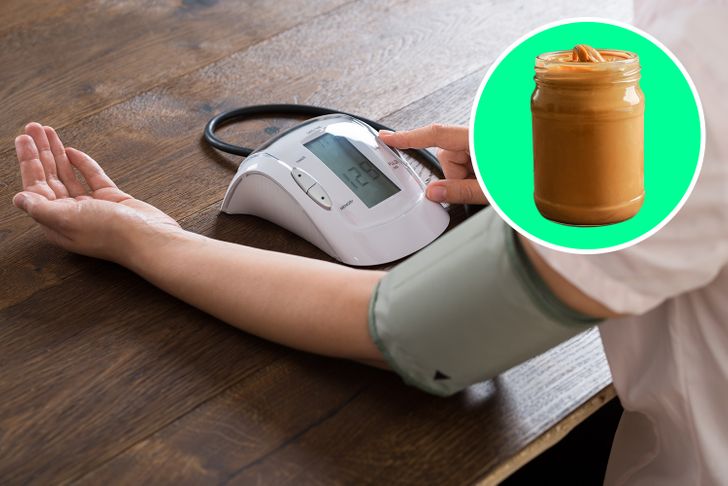Peanut butter is a firm favorite among adults and children alike. Although tasty, many people wonder about the health benefits of peanut butter.
Peanuts and peanut butter contain nutrients that may boost a person’s heart health and improve blood sugar levels.
Depending on how people use peanut butter in their diet, it can help them lose weight, or put on pounds during weight training or bodybuilding.
However, peanut butter is high in calories and fat, so people should enjoy it in moderation.
In this article, we look at the benefits of eating peanut butter and explain the risks associated with consuming it.
Peanut butter provides a good amount of protein, along with essential vitamins and minerals, such as magnesium, potassium, and zinc.
Most notably, each 2-tablespoon (tbsp) serving of smooth peanut butter provides the following nutrients, minerals, and vitamins:
- Protein. Peanut butter contains 7.02 grams (g) of protein per 2-tbsp serving. This counts toward the recommended dietary allowances (RDA) for women of 46 g and 56 g for men, which varies by age and activity level.
- Magnesium. With 57 milligrams (mg) of magnesium, each serving helps towards the RDA of 400–420 mg in men and 310–320 in women. Magnesium is essential for health, playing a role in over 300 chemical processes in the body.
- Phosphorous. Each serving contains 107 mg of phosphorus, which is about 15.3 percent of the RDA of 700 mg for adults. Phosphorus helps the body to build healthy cells and bones and helps cells to produce energy.
- Zinc. A serving of peanut butter provides 0.85 mg of zinc. This is 7.7 percent of the recommended daily intake of 11 mg for men, and 10.6 percent of the RDA of 8 mg for women. Zinc is necessary for immunity, protein synthesis, and DNA formation.
- Niacin. Peanut butter contains 4.21 mg of niacin per serving, which makes a useful contribution towards a person’s recommended intake of 14 to 16 mg. Niacin benefits digestion and nerve function and helps produce energy.
- Vitamin B-6. With 0.17 g of vitamin B-6 per serving, peanut butter provides almost 14 percent of an adult’s RDA of 1.3 mg. Vitamin B-6 plays a role in over 100 enzyme reactions in the body and may be necessary for heart and immune system health.
However, there are also nutritional disadvantages if a person eats more than the recommended amount of peanut butter.
Peanut butter is high in calories, saturated fats, and sodium.
Each serving contains 3.05 g of saturated fats, which is 23.5 percent of the American Heart Association’s maximum recommended daily intake of saturated fat for those consuming 2,000 calories a day. People should aim for less than 13 g of saturated fat per day.
Weight loss, breast cancer prevention, reducing insomnia, and way more — peanut butter is a natural treasure that can promote many positive changes in the body! It is full of useful vitamins, minerals, healthy fats, and elements that your body just craves. All you need to do is just enjoy it in moderation and you will see the results soon enough.
Nutritional profile
The table below provides a detailed nutritional profile of 2 tbsp of smooth peanut butter:
| Calories | 188 |
| Protein | 7.02 g |
| Saturated fats | 3.05 g |
| Monounsaturated fats | 6.63 g |
| Polyunsaturated fats | 3.63 g |
| Carbohydrates | 7.67 g |
| Fiber | 1.80 g |
| Sugars | 2.08 g |
| Calcium | 17 mg |
| Iron | 0.69 mg |
| Magnesium | 57 mg |
| Phosphorus | 107 mg |
| Potassium | 189 mg |
| Sodium | 152 mg |
| Zinc | 0.85 mg |
| Niacin | 4.21 mg |
| Vitamin B-6 | 0.18 mg |
| Vitamin E | 1.90 mg |
1. It helps to reduce the chances of breast cancer.
Natural proteins and natural fats in peanuts can significantly reduce the risk of breast diseases like cancer. This was supported by a study that was done by the Breast Cancer Research Foundation and the U.S. National Institute of Health. Eating this product daily has a positive effect on your body, and your breasts in particular. So, you are not allergic to it, be sure to add it to your menu.
2. It boosts weight loss.
It turns out that peanut butter has been unfairly removed from many diet plans, as they consider it too fatty. Instead, peanut butter is a great source of protein, fiber, and nutrition. It doesn’t change blood sugar levels and also provides your body with healthy elements. Consuming 2 tablespoons, 2 times per week can lead to reduced weight gain.
3. It decreases stress levels.
It contains a plant sterol — called beta-sitosterol, which can help to normalize levels of the stress hormone cortisol. Its healthy fats, antioxidants, iron, magnesium, calcium, and vitamin C help you to make up for the lack of these elements in your body, which will make you feel better. Also, combined with your favorite snack, it will have even a better effect on your mood.
4. It promotes brain activity and memory.
The vitamin E, zinc, magnesium, and niacin in peanuts support brain activity. Vitamin E is also able to boost memory, especially for older people. It was even found out that it helps to moderate Alzheimer’s disease. So, a jar of peanut butter could be a good snack to have on hand for your dear grandparents!
5. It helps muscles recover after a workout.
It’s a great pre- and post- workout food. Its fats and carbs will fill you with energy enough for the whole session. It’s also rich in potassium which plays a key role in muscle health in terms of recovery. Moreover, it can prevent you from having sore muscles and cramps, so your workout session will turn into a pleasure.
6. It controls your blood pressure.
One more awesome property of potassium — it’s able to lower your blood pressure. This effect is supported with magnesium — one more element that peanuts are rich with. To make sure that it works for you, you need to look for an unsalted version of this product.
7. It lowers your chances of developing diabetes.
Another amazing property of peanut butter — it can reduce the risk of diabetes. Yes, peanuts contain a lot of fats, but those are unsaturated fats — and they are healthy for you. They are able to improve glucose and insulin stability. In research done by Harvard University, they found some amazing results — women who consumed peanut butter regularly had a 21% reduced risk of diabetes, compared to those who never ate it.
8. It helps you sleep better.
The amino acid in peanuts, called tryptophan, boosts the sleep hormone, melatonin and the happiness hormone, serotonin. It calms you down, slows your body’s processes, and promotes a good night’s sleep. Though, there is no need to eat a lot of it — just a couple of tablespoons should be enough.
9. It’s good for pregnant mothers.
It seems like eating peanut butter during pregnancy can also have a positive effect on the fetus. It’s possible that it can promote the fetus’s tolerance and help to protect it from nut allergies in utero. Also, the peanut’s useful elements will benefit the mothers’ health.






























No comments:
Post a Comment